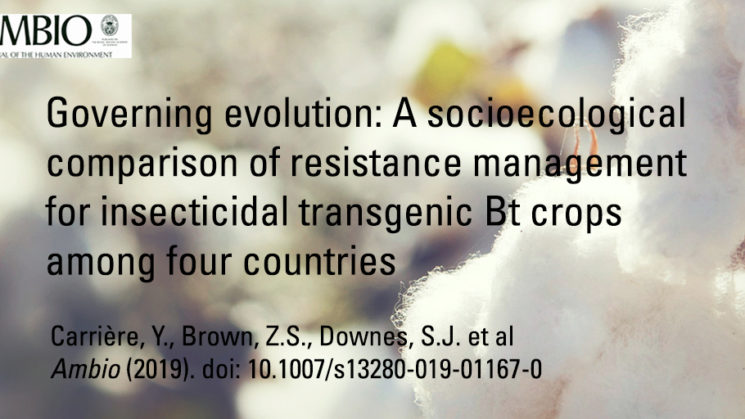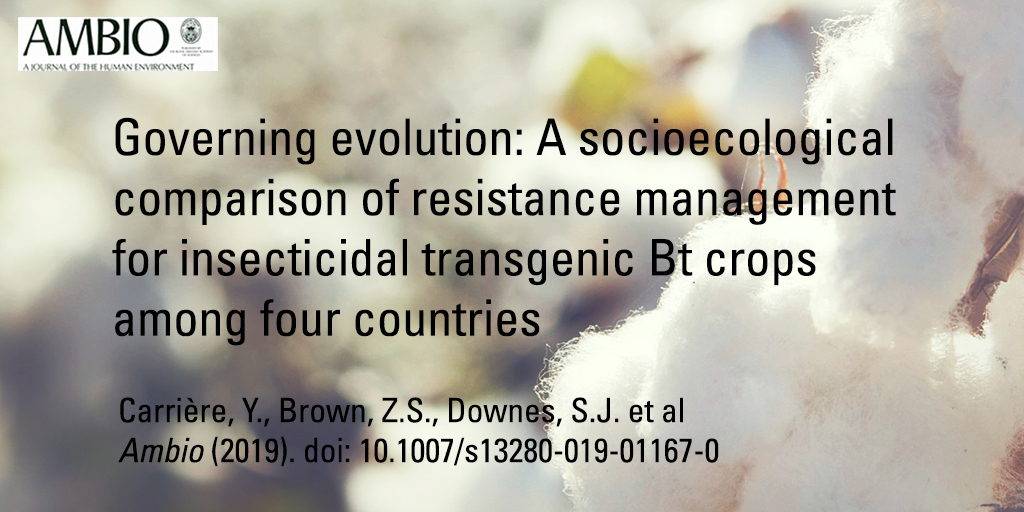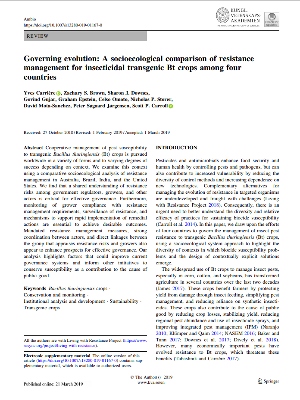

Governing evolution: A socioecological comparison of resistance management for insecticidal transgenic Bt crops among four countries
Abstract
Cooperative management of pest susceptibility to transgenic Bacillus thuringiensis (Bt) crops is pursued worldwide in a variety of forms and to varying degrees of success depending on context. We examine this context using a comparative socioecological analysis of resistance management in Australia, Brazil, India, and the United States. We find that a shared understanding of resistance risks among government regulators, growers, and other actors is critical for effective governance. Furthermore, monitoring of grower compliance with resistance management requirements, surveillance of resistance, and mechanisms to support rapid implementation of remedial actions are essential to achieve desirable outcomes. Mandated resistance management measures, strong coordination between actors, and direct linkages between the group that appraises resistance risks and growers also appear to enhance prospects for effective governance. Our analysis highlights factors that could improve current governance systems and inform other initiatives to conserve susceptibility as a contribution to the cause of public good.
Keywords: Bacillus thuringiensis crops, Conservation and monitoring, Institutional analysis and development, Sustainability Transgenic crops
Dr. Zachary S. Brown is an Assistant Professor in Agricultural and Resource Economics and and a member of the Genetic Engineering and Society Center Executive Committee at NC State University.
Cite as:
Carrière, Y., Brown, Z.S., Downes, S.J. et al (2019). Governing evolution: A socioecological comparison of resistance management for insecticidal transgenic Bt crops among four countries. Ambio.
https://doi.org/10.1007/s13280-019-01167-0 Download PDF
